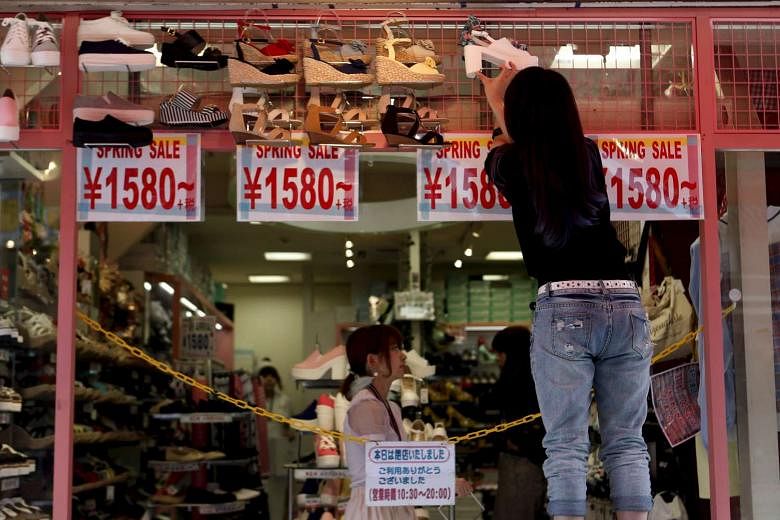TOKYO (REUTERS) - Japan's core consumer prices fell 0.1 per cent in the year to September, a second straight month of declines, keeping inflation distant from the central bank's 2 per cent target.
While the decline was mostly due to slumping energy costs, it will keep the Bank of Japan under pressure to do more to rebuild growth and accelerate inflation in a country mired in nearly two decades of grinding price declines.
The BOJ is likely to keep monetary policy steady but cut its economic and price forecasts for the current fiscal year in a twice-yearly outlook report due out on Friday.
The 0.1 per cent drop in the core consumer price index (CPI), which includes oil products but excludes fresh food prices, compared with a median market forecast for a 0.2 per cent decline and followed a 0.1 per cent fall in August, data by the Internal Affairs Ministry showed on Friday (Oct 30).
Japan's consumer inflation has ground to a halt on renewed declines in oil prices, keeping alive speculation the central bank will expand stimulus again soon to show its determination of hitting an ambitious 2 per cent price growth target.
The central bank has said it will look through the effect of falling oil costs on inflation, stressing that companies are becoming more comfortable raising prices of their goods due to a rebound in household spending.
The so-called core-core CPI, which strips away both energy and volatile food costs, rose 0.9 per cent in the year to September, the data showed.
While slumping oil prices put downward pressure on inflation, they benefit companies and households by pushing down fuel costs.
In a sign such benefits have failed to reach consumers yet, household spending fell 0.4 per cent in September from a year earlier, confounding a median market forecast for a 1.2 per cent rise, data showed on Friday.
But the job market continued to tighten, suggesting that wages and household income will increase in the coming months.
The jobless rate stood at 3.4 per cent in September and the job-to-applicants ratio rose to 1.24, hitting the highest level since January 1992, separate data showed.

